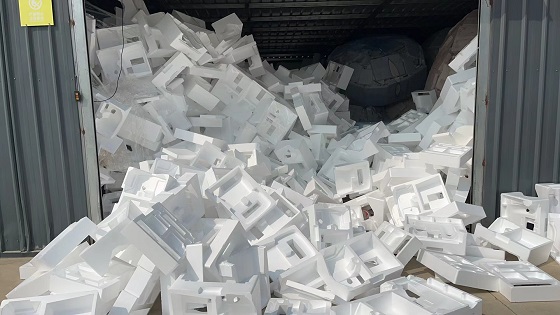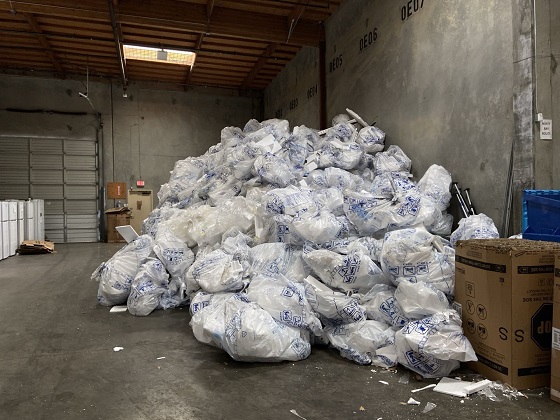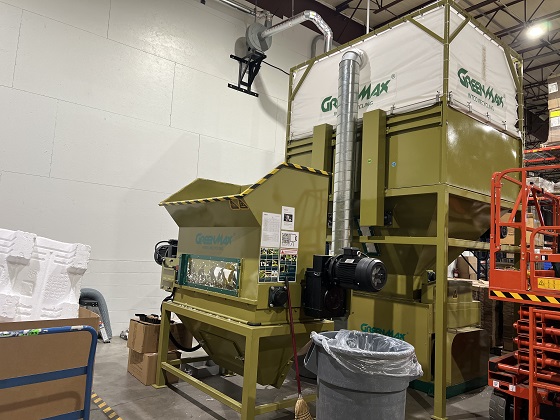GREENMAX recycling equipment works to reduce landfill taxes
What is the landfill tax?
The UK landfill tax is a green tax that uses economic levers to guide economic targets, gradually shifting the tax burden on business to subsequent polluters and resource users. The UK introduced a landfill tax in 1996, initially at £7 per tonne, rising to £103.7 per tonne in 2024.
Since 2004, landfill tax in the United Kingdom has been levied on the weight of unsorted waste per household instead of a fixed amount. This shift has effectively halted the upward trend of household waste production per capita in the UK, and prompted it to rapidly turn into a unilateral downward trend.

Who pays for landfill tax?
While landfill operators--Any entity with an official license to dispose of waste in a UK landfill qualifies as an operator. This role is typically assumed by waste management companies, both small and large, as well as some local councils, settle the tax directly with the UK government, its economic burden trickles down the waste management chain onto businesses and even public organisations like schools and hospitals.Therefore, businesses in the UK pay for their landfill tax indirectly as part of their waste management costs. The exact form of payment depends on who is in charge of your commercial waste collection:
Private contractor: If your business waste is collected by a private contractor, the landfill tax is paid as part of the collection fees, which are a good indication of the tonnage of waste collected as its determined by The size of your business’s commercial waste bins and the frequency of your waste collection.
Local council collection: If the council collects your business’s waste, the landfill tax is paid by your council and passed on to your company as part of a paid-for business waste collection service.
The landfill tax is paid directly by landfill site operators and indirectly by residents and business owners, so the answer depends on who you ask.
Landfill operators will cover the tax costs by charging higher waste disposal fees to councils and waste collection companies, who in turn charge higher council tax rates or waste collection fees to organisations, businesses and homes.

Who is exempt from landfill tax?
Only waste disposed of in landfills must pay the tax, so any waste taken elsewhere or re-used within a landfill is exempt. Here are some examples:
Waste from mining and quarrying: This waste does not need to pay landfill tax when disposed of at the site of extraction. The exemption is aimed at reducing the regulatory burden on these industries.
Inert waste used for landfill restoration: Inert waste, such as soil and stones, can be exempt when used for restoration or engineering purposes in the landfill site.
Landfill tax rates
The UK has a two-tier tax rate system designed to accommodate both large amounts of relatively harmless, unavoidable waste, and avoidable or recyclable waste with more significant environmental impacts.
The tax is charged per tonne of waste and has two rates:
A lower rate for less polluting, inert waste. This rate applies to most types of waste disposed of in landfills. It’s typically higher and is intended for materials with a greater environmental impact when landfilled, such as residential and commercial waste that includes organics, electronics, batteries and some hazardous waste.A standard rate for most waste types. This reduced rate is for less polluting materials, which are typically inert and less harmful to the environment when landfilled, such as construction and demolition waste, including concrete, bricks and soil
The rates for the fiscal year 2023 to 2024 (April 1st 2023 to April 1st 2024) are as follows:
Standard rate: £102.10 per tonne
Lower rate: £3.25 per tonne.
These will increase to £103.70 per tonne and £3.30 per tonne for the next fiscal year on April 1st 2024. This increase is normal and is due to the government’s yearly budget review. Scotland and Wales can technically set their own rates because of devolved waste policy, although they currently remain aligned with the UK’s.
The rates are subject to annual review and adjustment. The government uses revenue generated from this tax for its public spending and to fund environmental and community projects.

How much landfill tax does your business need to pay?
The amount of landfill tax your business must pay (indirectly) ultimately depends on the weight of the waste disposed of by the operator handling your commercial waste disposal.
As a result, the less waste you generate, the less they receive for disposal, and the less they have to pay the government. In terms of actual transactions, your business will pay for this as part of its waste collection costs, which means you first need to understand how these are calculated.
Your commercial waste collection provider will adjust its fees depending on two things: the size of the bin that is rented to your business property and the frequency of waste collection.
These factors are assessed together at the start of a contract based on the estimated amount of waste your business generates. This approach allows them to charge fees proportional to what they will incur in landfill tax payments to the operator.
How can a business pay less landfill tax?
To indirectly pay less in landfill tax, a business can reduce the size of its waste bin and the frequency of waste collection.
1)Waste prevention and avoidance
Prevent waste generation. Examples include avoiding products with excessive packaging, banning single-use plastics, reusing cardboard boxes, and repairing your electronics instead of discarding them.
2)Waste minimisation and reduction.
Minimise unavoidable waste. A significant step towards this goal is arranging for the separate collection of commercial food waste, which often makes up a significant portion of waste due to its prevalence and weight.
How can GREENMAX help?
GREENMAX provides you with one-stop recycling equipment and solutions to achieve resource reuse, environmental protection and economic benefits.
GREENMAX recycling equipment can automatically process various and amount of waste materials, saving landfill costs. In addition, reduce the waste landfill and incineration, reduce the negative impact on the environment, which also helps save energy, reduce greenhouse gas emissions and promote sustainable development.
For more information, please contact with GREENMAX!
